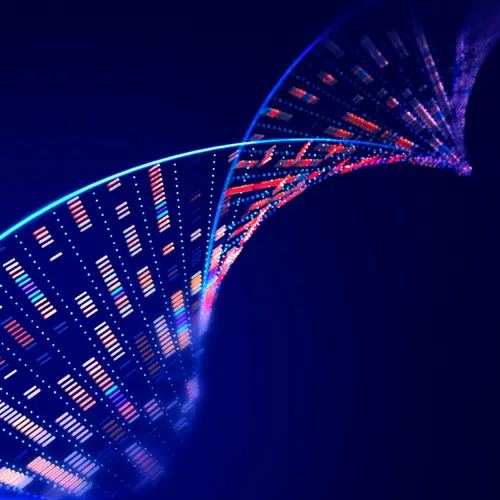Taking medicine is a big part of your ulcerative colitis (UC) treatment plan. But many people wind up stopping or skipping doses: Research shows that 1 in 5 people with an inflammatory bowel disease, such as UC, don’t take their meds as prescribed.
There are many reasons why people are tempted to quit, says Aline Charabaty, MD, director of the IBD Center at Johns Hopkins-Sibley Memorial Hospital in Washington, DC. Taking medicine can be a hassle, or you don’t like the side effects. Or you’re in remission and feeling fine, so you think you don’t need meds anymore.
But it’s important to stick with the game plan. Drugs keep the inflammation in your colon and rectum in check. This gives it time to heal. “When you stop medication, there’s a high chance that you’ll relapse,” Charabaty says. The inflammation can set off a flare-up of symptoms. What’s worse, it can lead to permanent damage or other complications.
Can You Ever Stop Taking UC Meds?
UC is a chronic disease with no cure, says Tauseef Ali, MD, chief of gastroenterology at SSM Health St. Anthony Hospital in Oklahoma City. Unlike a cut, UC doesn’t heal and get better. Without treatment, the inflammation comes back. That means you’ll likely have to take medications for the rest of your life. These may include anti-inflammatory drugs, immune system suppressors, and biologic therapies.
In rare cases, people who’ve been in remission for years with no signs of inflammation can try going off their medicine. But this is always done under a doctor’s care, Ali says. You’ll need to get regular blood tests and endoscopies to check for inflammation.
What Happens if You Stop Taking UC Meds on Your Own?
Stopping your meds can set off inflammation in your colon and rectum. This can lead to more symptoms and serious complications.
You may have a flare. Even if you’re symptom-free, you shouldn’t stray from your treatment plan. Medicines help you stay in remission and maintain the disease, says Benjamin Cohen, MD, clinical director of IBD at the Cleveland Clinic Digestive Disease & Surgery Institute. Without them, the inflammation returns and triggers a flare-up of symptoms, such as diarrhea, urgent bowel movements, nausea, weight loss, and fatigue. You may also have pain or cramping in your stomach or rectum.
In one study, 59% of people with UC who didn’t take their medicine as prescribed had a flare within a year. The problem is that flares can worsen the disease, Cohen says. You may have more severe inflammation, or it can affect a larger area.
You may have complications. Unchecked inflammation can lead to permanent damage. “With every flare, the structure of your bowels change,” Charabaty says. This can lead to life-threatening problems, such as:
- A hole in your colon (perforation): Chronic inflammation and ulcers may lead to a hole in the intestinal wall. The contents of your intestine, including bacteria, can spill into your abdomen and cause a dangerous infection.
- An inflamed colon (fulminant colitis): Although it’s rare, the entire lining of your colon can become inflamed. When it becomes very swollen, your colon may stop contracting.
- A rapidly swelling colon (toxic megacolon): In this serious complication, the colon expands and stops contracting and moving gas through your intestines. The raises the risk of your colon rupturing, which is life-threatening.
You may go through withdrawal. If you’re taking steroids to control a flare, stopping them suddenly can lead to fatigue, weakness, nausea, joint pain, and body aches. That’s because steroids are similar to a natural hormone called cortisol. If you take them for more than a few weeks, your body stops making as much cortisol. As a result, going off of them abruptly can cause your body to go through withdrawal. Your doctor can help you taper off of them slowly.
Your current medicine may not work anymore. After you stop taking a certain drug for your UC, it may not have the same effect when you start taking it again. “For example, you may take a medicine for a mild case of UC,” Charabaty says. But with the next flare, your disease is more severe, so it doesn’t cut it anymore.
If you quit a biologic, your body may develop a resistance that that drug. Biologic therapies target specific proteins that cause inflammation. When you stop a biologic for a while, your body can develop antibodies and stop responding to the treatment. You’ll need to switch to another drug. But the problem is that medications for UC are limited. You may run out of options, Charabaty says.
You risk for cancer could go up. About 5% to 8% of people with UC will develop colorectal cancer within 20 years of their diagnosis. Going off your medication may worsen those odds, Ali says. Over time, chronic inflammation can damage your DNA and lead to cancer.
How Can You Stay on Your UC Treatment Plan?
Talk to your doctor if you’re thinking about stopping UC treatment. They can explain your choices and find a safe option. Don’t like your medicine’s side effects? You may be able to switch medicines or take a different dose.
If paying for your treatment is a problem, the doctor can refer you to a resource, like a medication assistance program.

